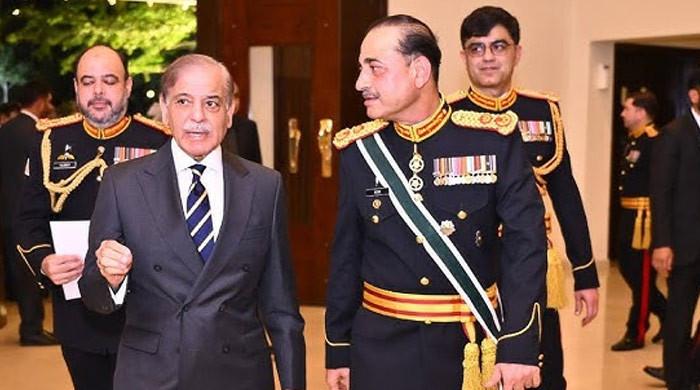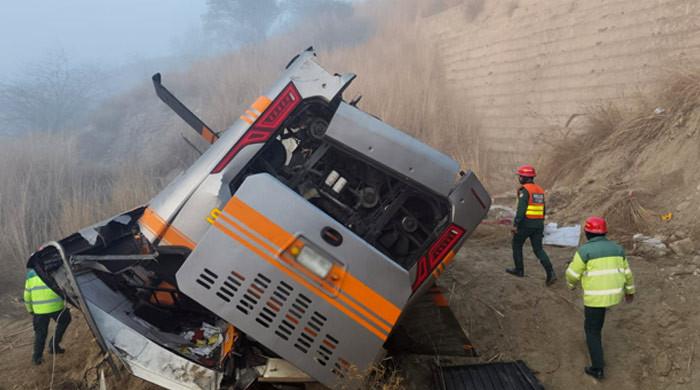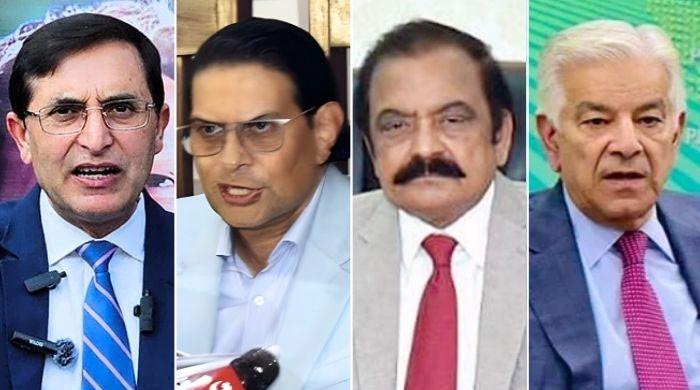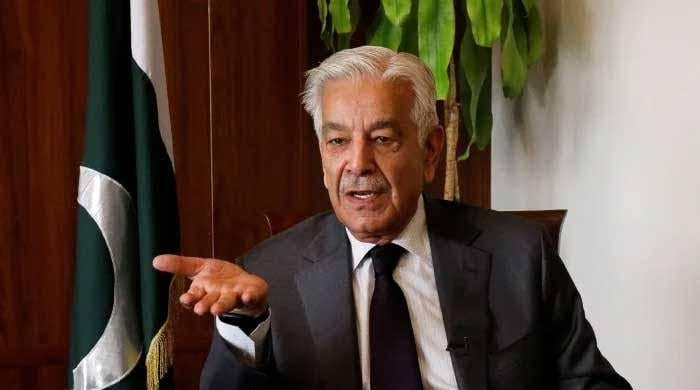Pakistan gears up to thwart India's claim on Basmati rice
Advisor to PM on Commerce Abdul Razzak Dawood talks on trade with India, Afghanistan and reviving economy in a pandemic
November 07, 2020
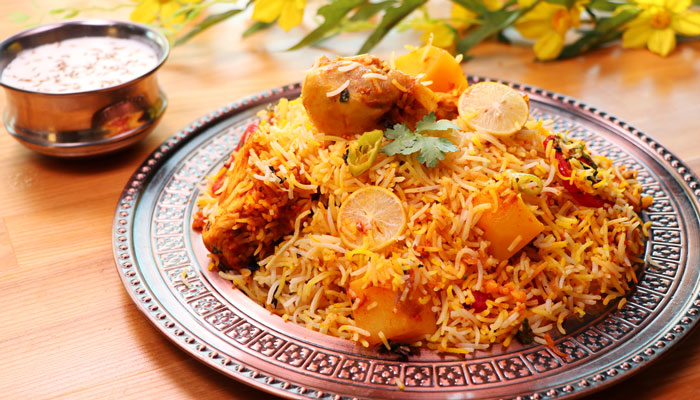
Pakistan is all geared up to thwart India's attempt to obtain branding rights for Basmati rice, The News reported.
Advisor to PM on Commerce Abdul Razza Dawood said on Friday that the government had prepared a detailed response in the matter and would submit it before the European Union Commission on December 10.
He hoped the Indian's claim on Basmati rice would be rejected in totality. "The decision is expected within a one-year period," he added.
We are in possession of many documents which we will present as documentary proof to the EU Commission to prove Basmati rice is our brand, the advisor told The News.
Dawood said India's stance on Basmati rice was impossible to prove since Pakistan possessed every proof to foil their attempt. "The first statement will be submitted on December 19, the application will be submitted in the second round."
"I met with the attorney general yesterday to ensure we hire a good law firm to present our Basmati case before the EU commission."
Pak-Afghan transit trade
Dawood is scheduled to travel to Afghanistan on a two-day trip on November 16 to kick-start negotiations on the revision of the Afghan-Pakistan Transit Trade Agreement (APTTA).
Reflecting that Afghanistan was a tough negotiator, the advisor still hoped the revised agreement would be finalised in three to four months.
"Smuggling of goods into Pakistan is a major concern and Islamabad has conveyed its list with the Afghan authorities."
New market
When asked about the market access after the recent US elections, he said that the new US government would take some time to settle down but getting market access from Washington was not an easy task yet Islamabad would continue its efforts to get increased market access.
CPEC
When asked about the establishment of Special Economic Zones (SEZs) under CPEC, he said that it requires a lot of spadework and acquisition of land is a provincial subject. He said that the SEZ at Dabeiji would be quite crucial because land scarcity was hampering Karachi’s industrialists. Once SEZ at Sundar became successful, its model would be replicated.
He said Faisalabad’s SEZ was operating and 10 to 15 units were in the process of relocation. “It would be great if Pakistan would be able to relocate 1,000 Chinese units at Gwadar or other SEZs in Pakistan,” he added.
Economic revival post-coronavirus lockdown
To another query about the export targets, he said that the government wanted to fetch $27 to $28 billion exports of goods and services during the current fiscal year. He said that he used to give a range of export targets for the current fiscal but after the second wave of outbreak of Covid-19 pandemic, he was a bit reluctant to give any figure. When asked again, he replied that for export of goods, our target stood at $22 to $23 billion and for services $5 billion, so in totality exports of goods and services could fetch $27 to $28 billion.
He said it was not good to rely on five traditional sectors of exports, so the government had prepared the Strategic Trade Policy Framework (STPF) for focusing on pharmaceutical, engineering, agro products, meat and poultry. Our policy is product diversification within sectors like textile and then increase in other sectors. He said that fruits and vegetable exports had so far fetched $750 million as mango and keno exports were the major contributors. He said the export of mango was targeted at 80,000 tons but it went up to 125,000 tons in the current season.
Our second focus is on geographical diversification to boost up exports to Africa, Central Asian Republics and Russia and other states. Then the government decided to come up with Look Africa policy as one consultant was coming to Pakistan soon in order to exploit the situation. “We are giving a target of $5 billion exports to Africa,” he added. In Africa, our engineering products such as tractors are going and also rice.
When asked why exports were not increasing at the desired pace, he replied that it was not easy task for increasing exports as when this government came into power and he had gone to Faisalabad, everyone was saying that Pakistan was passing through de-industrialization whereby manufacturing units were closing down. The analysis was done to ascertain the reasons and it was found that the rupee was overvalued and secondly the tariff structure was flawed. He recalled that the government did not focus on boosting up exports in the last five years. When reminded by this scribe that the last government had given an export incentive package, he said that the-then government had given export package in 2017 after which the export position witnessed a little bit improvement and declining trend was stopped but exports remained stagnant.
He said that the stuck-up refunds and duty drawback on local taxes and levies (DLTL) were paid back to exporters and so far the government had provided over Rs 200 billion amount and the backlog was cleared substantially. Secondly, he said the cost of doing business was reduced and 40 percent raw material could be brought into Pakistan at zero rated duty. It means there is zero Customs Duty, Additional Customs Duty and Regulatory Duty on 40 percent raw material coming into Pakistan through imports. The imports were reducing mainly through massive reduction in non-essential imported items.
Now the economic activities are picking up as large scale manufacturing had turned into positive as cement sale was making records. The motorcycle sale has achieved the highest-ever record in the history of the country, he added. The overall LSM growth has transformed from negative to positive in the current fiscal year, he maintained. He said that exports improved by six percent in July 2020 compared to the same month of the last year. However, exports turned into negative in August 2020 because of increased number of holidays and severe rainfall that choked activities at ports.
The international demand also contracted in the aftermath of Covid-19 pandemic. The Pakistani manufacturing units have exhausted their capacity after running at full capacity, he added.




